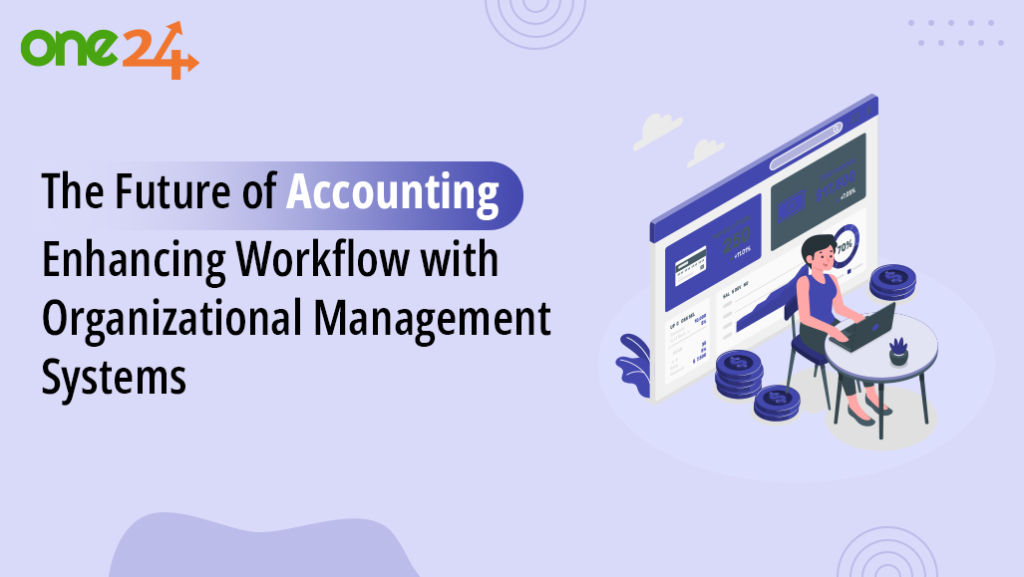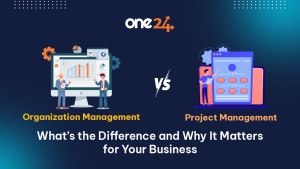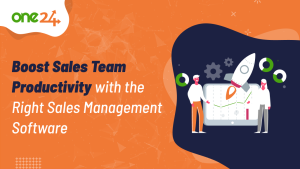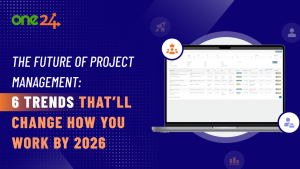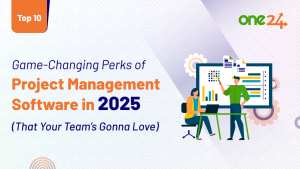Within the dynamic realm of commercial operations, accounting is a vital component of financial management. An important change in the future of accounting is occurring as sectors adjust to the digital revolution. In this paradigm, Organizational Management Systems (OMS) are becoming essential instruments that provide creative ways to improve workflow efficiency, simplify procedures, and reach new levels of financial management. This blog examines how accounting is changing and how OMS can have a significant impact on how it develops in the future.

The Changing Face of Accounting
Accounting has historically been associated with labor-intensive duties, paperwork, and manual processes. On the other hand, technical developments have completely changed this industry, opening the door for data-driven decisions, automation, and digitization. Professionals can now handle financial data, evaluate patterns, and provide insights with never-before-seen speed and precision thanks to advanced software tools.
Organizational Management System Working Magic for Accounting
OMS like One24 are leading the way in every industry for the smooth functioning of companies. These are all-inclusive platforms that integrate and improve many corporate functions, including accounting. Financial management, resource planning, process automation, and data analytics are just a few of the features that OMS offers. These features are all neatly combined into one ecosystem.
- Improving Workflow Efficiency
Improving workflow efficiency is one of the main advantages of OMS in accounting. Manual data input, reconciliation, and reporting are common components of traditional accounting procedures, which can cause delays, mistakes, and inefficiencies. By automating these repetitive operations, professionals may concentrate on more valuable activities like strategy, analysis, and decision-making. This tool speeds up financial transactions, increases data accuracy, and lowers mistakes by doing away with manual interventions.
- Simplifying Financial Management
OMS offers a consolidated platform to manage all facets of financial operations, from planning and forecasting to general ledger administration and accounts payable/receivable. It breaks down organizational archives, increases visibility, and makes it easier to obtain vital financial data in real time by combining various operations into a single, integrated system. Teams can use this to reduce risks, make well-informed choices, and boost business expansion.

- Using Automation to Increase Accuracy
Automation gives professionals the ability to enforce regulatory compliance, automate tedious activities, and standardize procedures. OMS decreases manual errors, increases data accuracy, and strengthens auditability with capabilities including automated data entry, invoice processing, and reconciliation. To ensure adherence to company policies and industry standards, it can also enforce access controls, approval workflows, and segregation of roles.
- Encouraging Data-Informed Decision-Making
It is critical to have quick, accurate, and actionable insights available in today’s data-driven corporate environment. Professionals may recognize patterns, spot abnormalities, and find areas for optimization by using OMS’s analytics capabilities to turn raw financial data into insightful understandings. Through the utilization of forecasting models, what-if scenarios, and predictive analytics, it enables enterprises to foresee future trends, make well-informed choices, and maintain a competitive edge.
- Encouraging Cooperation and Communication
Smooth accounting processes depend on effective cooperation and communication. By offering a centralized platform for information sharing, document exchange, and real-time project collaboration, OMS helps cross-functional teams collaborate. It integrates capabilities like task tracking, document management, and team messaging to promote responsibility, transparency, and teamwork throughout the company. This makes it possible for professionals to produce outcomes, increase productivity, and collaborate toward shared objectives.
- Ensuring Security and Compliance
Security and compliance have emerged as key objectives for enterprises in light of the growing danger of cyberattacks and data breaches. Strong security mechanisms are included in OMS to protect private financial information and guarantee adherence to laws like PCI-DSS, SOX, and GDPR. This software guards against fraud, illegal access, and data leakage by putting in place encryption, access controls, and audit trails. Organizations may also produce audit reports, automate compliance monitoring, and prove regulatory standard conformity with this tool.

- Adapting to Changing Business Needs
Accounting requirements change and expand along with enterprises. OMS provides enterprises with the scalability and flexibility to adjust to evolving business requirements, enabling them to scale their processes with ease. Whether entering new markets, introducing new goods, or reorganizing operations, these tools offer the flexibility and adaptability required to meet changing business needs. Through customizable modules, integration capabilities, and workflows, such software enables organizations to customize their processes to meet their specific needs.
Conclusion
Organizational management systems are at the forefront of a technological revolution that will redefine accounting in the future. Organizations’ approach to managing their accounting operations is being completely transformed by these tools, which are improving workflow efficiency, simplifying financial administration, utilizing automation, and promoting data-driven choices. They will become more and more important in determining the direction of accounting as companies continue to embrace digital transformation. It will enable them to hype productivity, creativity, and expansion in a constantly shifting environment.
You Might Be Wondering!
1. How can an OMS improve the effectiveness of the accounting workflow?
By automating repetitive accounting operations like data input, reconciliation, and reporting, OMS lowers the need for human intervention while quickening the flow of financial transactions. It improves workflow efficiency by standardizing procedures and getting rid of errors, freeing accounting professionals to concentrate on higher-value tasks.
2. Is it possible for an OMS to simplify financial administration for businesses?
Yes, an OMS provides a full range of capabilities for financial management, such as forecasting, accounts payable/receivable, general ledger administration, and budgeting. It increases visibility, makes it easier to obtain vital financial data in real time, and promotes well-informed decision-making by combining various financial processes into a single, integrated system.
3. What part does automation play in accounting OMS?
Automation is essential to OMS for accounting since it helps businesses enforce regulatory compliance, improve data accuracy, and automate repetitive activities. Features that decrease manual errors and increase efficiency include automated data entry, invoice processing, and reconciliation.
4. In accounting, what are the advantages of using OMS to support data-driven decision-making?
These tools use cutting-edge analytics tools to convert unstructured financial data into insightful knowledge. Trend analysis, anomaly detection, and optimization opportunity discovery equip accounting professionals to make wise choices to predict future trends and propel business expansion.
5. Is OMS able to change to meet the changing accounting needs of the IT Companies?
Yes, OMS provides flexibility and scalability to accommodate evolving business needs. When it comes to adapting to changing business conditions, it offers the flexibility and customization choices needed to support new product launches, market expansions, and operational restructurings.

